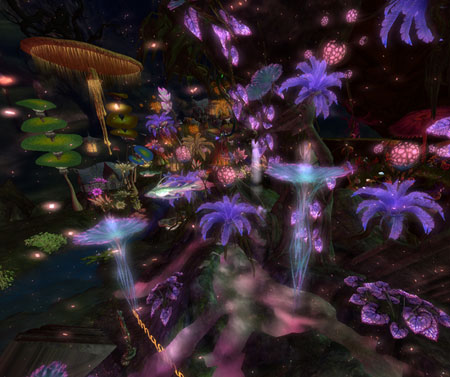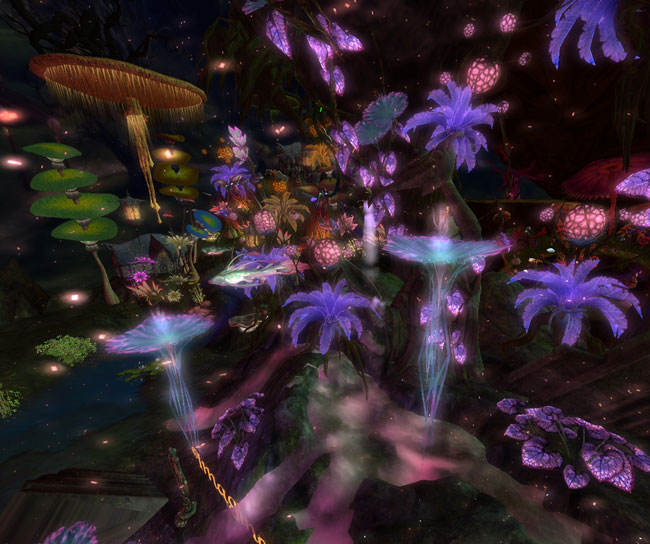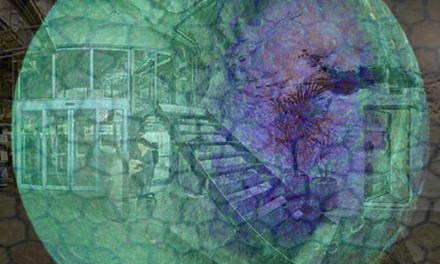 Fearsome Aliens in Moorhia
Fearsome Aliens in Moorhia
By
Harriet Darling
It was nearly sundown on our lovely world of Moorhia, yet the two faintly spectral moons in the sky reflected plenty of light onto our farmland. This seemed to sparkle under the stars, especially just outside the moon window where my very own garden of Whip-beans swayed in the slight breeze. My twin brother’s mate, Elador, and I had gathered our children to sit beside the moon window for our evening meal, and it would soon be time for the story—or should I write, The Story.
Elador smiled at the children. “Gadyne will finish clearing the platters if you four will wait patiently, and then she will tell us a tale about aliens.”
Our two sets of young twins sat back to await their favorite activity, my stories. I exchanged glances and a smile with Elador and rose to clear the platters, and then settled down at the table to contribute another in my ongoing stories about life on our beloved world of Moorhia. But this would be a most important story.
*
“Now then,” I said, tucking my tail under me. “A story about aliens. Do you know what aliens were, my dears?”
“I do!” my girl-twin Melisay said eagerly. “They were odd strangers to our planet.”
“No, they weren’t!” her twin brother Kalon exclaimed scornfully. “They were people who lived somewhere else.”
“You are both right,” Elador said soothingly, patting the backs of my twins sitting on either side of her. “They were strangers who lived somewhere else, and they seemed odd to us.”
I couldn’t help a slight chuckle, and Elador’s twins, sitting beside me, joined in. Tween and Bittery were slightly older than my two, and they had the benefit of more schooling.
Tween said, “The aliens were strange-looking people who came to Moorhia on spaceships.”
Bittery nodded at her brother’s statement, adding, “They came to Moorhia in spaceships from other planets in the universe.”
“Yes,” I said. “There are many other planets in our universe, and some even have people living on them. These particular aliens were not always people just like us, though.”
“What were they like?” all four chorused at once. Then they laughed, and of course Elador and I joined them, our hairflaps jiggling almost in concert.
“Well,” I began, “some were not very different. I recall one such people, the Dendrae, who stood on two limbs, like us, and had only two of everything else.”
“Two arms?” Bittery asked.
“Two eyes?” Tween wondered.
I nodded. “And two ears, two arms and two hearts, just like us. But they had no tail and only one brain, and it wasn’t as advanced as ours.”
“Did they have two mouths?” Melisay asked.
Her brother laughed and pointed at her. “Two mouths?” he exclaimed. “How could they have two mouths? You’re stupid!”
“Hush, all of you,” Elador cautioned. “Gadyne won’t finish the story if you don’t behave.”
Both sets of twins nodded and sat back stiffly to show her that they were listening and would stop interrupting.
“Good,” she said. “Now, Gadyne, go on, please.”
*
So I went on. “It is true the Dendrae were much like us, but there were nearly a dozen other races that were nothing like us. All these stranger races arrived on Moorhia over the period of a star year. They were introduced to our Council, and then they went away with gifts from us. None of these races had been thought fearsome, or dangerous—to us, or to one another.
“Yet within a few brief cycles of Leeda, our major moon, each race had attacked one or more of the others and defeated them, or been defeated, until there were only three races left. Then these three somehow got together and came after us.”
I stopped and thought about what I should say next. Of course, we could not allow them to conquer us, especially because of the “alienness” and fearsomeness of these stranger races. So we had to defeat their combined army.
Our people had never been united in the past, and our Council assumed we could not unite this time. But a young pair of twins arose and spoke out at the Council, and then at the Councils of the other three factions around the world, and very soon Moorhia was united.
Each of the four factions provided an equal number of twin pairs to fight the combined races attacking us. Because we had always had advanced technology and brain power; we were able to defeat the armies and drive them out of our galaxy. So now there were no more strange races in our universe.
I realized I’d been quiet for a little too long and the children were beginning to get restless. So I met Elador’s eyes and continued, recalling where I had left off—a description of the Dendrae.
“There were two other races,” I went on, “that looked something like us. But they didn’t think like us at all. These were the Heliopp and the Liucati.
“The Heliopp seemed to be very good-natured people, and they seemed to laugh at all our jokes and witticisms. Everyone enjoyed being around them, even though they had six arms, all of which were very long, and their heads had a deep dip in the crown. Our doctors told us the Heliopp probably had only one brain, and it would most likely have been nowhere near as advanced as ours.”
“But the Liucati had very advanced brains,” Elador put in, “didn’t they?”
“Yes,” I agreed with a smile at my brother’s mate. “They were very tall, with very thick legs and cloven hooves for feet. They also had eight tentacles extending from under four arms, and they spoke in musical chimes that needed to be translated. Our Council took the longest time to get to know them,” I added.
“So that’s three of the races,” Bittery pointed out. She was always the one who made sure all the sums came out even. “How many were there altogether?”
As usual, her brother, Tween, put in his jab at her. “You mean you haven’t figured out how many there were yet?” he asked.
I shook my head at him and continued. “There were twelve races that came to visit us. I’ve described three, and three of the others were almost identical. They were the mupjay, the Terrans, and the Jovians. All three of these races had two lower limbs and two arms, two eyes and ears, one mouth, and only one heart and one brain. But the brains of the Terrans and Jovians were nearly as advanced as ours, and the brain of the mupjay was even more advanced.”
“So that leaves six,” Bittery announced.
“That leaves six,” I agreed. “Well, each of those six resembled an ancient race of monsters from our mythology. But they only looked like those monsters, you see, they didn’t behave like them, at least they didn’t while they were on Moorhia.
“There were two three-headed creatures, and the heads of each of these two stranger races spoke different languages from one another. They often stopped speaking to one another after an argument, and it was very confusing to try and understand them.
“The third Monster race was very tall and very thin and pale, with lesions all along their spines – or what would be spines if they were like us. They didn’t actually have spines, and when they came back to fight us, there were sharp spikes along their backs where the lesions had been. They also had talons on what would have been hands, and on their feet. These were long and sharp, with spurs and thorns on each one.”
At this point, Tween shuddered, stood up and walked to the water fountain for a drink. He brought back a cup for each of us, and then sat back down. As he was fetching the water, the younger male, Kalon, asked if he could know something.
When I nodded, he said, “How do you know all this, Gadyne? Were you alive then?”
“Of course not,” I said, patting him on his back. “I heard all this the same way you’re hearing it. My mother and Elador’s told us all about this, and their mothers told them, and so on, back to the time when the races were conquered. You’ve heard about that in your Moorhia history classes, have you not?”
Both sets of twins nodded. Then my little one, Melisay, whistled for attention and said, “There are three more races, Gadyne, are there not?”
“Yes, little one,” I said; she never allowed me to skip over anything. “Each of those races was different from one another, and from us. The Eloniha were hunched over and seemed crippled, and much of their communications seemed to be grunts. The 66Mahokn had living snake-like beings on their heads instead of hairflaps, and their skin flaked and fell off all day long. And the Linyahoji were a lot like smoke rings; they were the most difficult to talk to as they spoke in wisps of fog that dissipated before our translator could interpret.
“One of the races that came back to challenge us was a Monster race, the second people were the Terrans, and the third were the Linyahoji, the beings that resembled smoke rings and were most difficult to fight.”
*
Now it was time for all four children to go to sleep, so we headed into the grand sleep-room. Elador and I would be staying awake for a while, but we all drank the floron, our nighttime cocktail, and settled onto the girls’ beds.
Of course it was Melisay who asked, “Can you tell us about the last battle, and how you defeated the Monster race, the Terrans, and the Linyahoji?”
“All right, children,” I agreed, “but then it’s to sleep with you all. Elador has agreed that you may all sleep in the grand sleep-room for once, but I will finish the story in one hauere, so let’s have far fewer interruptions.”
The children agreed and I continued. “The end of this story is what you’ve all been taught in your history classes. But there is a little more that isn’t taught,” I said.
“You know we Moorhians have a culture of peace, and it is commonly known among adults that those stranger races believed that because of this, we were weak. All Moorhians know our strength comes from our culture of peace, and over the many generations before the first of the stranger races arrived, there had been wars among the Moorhians which eventually led to the culture of peace.
“It’s little known,” I told them, “that we were not the race that evolved here. Instead, we were once a stranger race, too. We came to Moorhia as the stranger races came, and we met several peoples here on Moorhia that were the original inhabitants.”
The children all sat up in their beds and their mouths dropped open. This was indeed something they had not known. I smiled as I imagined almost every home in Moorhia with children was now experiencing this very same astonishment.
“What?”
“But . . .”
“Gadyne!”
“Mother?” The children all spoke at once, and Elador and I watched calmly as their faces showed the uncertainty and actual fear we had felt when our parents had told us the same thing.
“So now you know,” I said. “Unlike any of the stranger races that attempted to defeat us, we were able to defeat the original races on Moorhia. At that time, children, we were a terrible, warlike people, and we knew exactly how to defeat our enemies.”
“Our enemies?” Melisay exclaimed. “The Moorhians were our enemies?”
I nodded, and Elador and I waited until the children had ceased whispering to one another. Tween and Bittery had risen from their beds and paced the large room, then returned to the beds to whisper to their siblings, and then rose to pace again.
Finally they all settled down and I took Elador’s hands, squeezed them, and then said, “We learned, too late to avoid the loss of the native races of Moorhia, that we ourselves had mistaken their culture of peace as weakness; we were intolerant of what we could not yet understand, and of the differences between our races. We were unforgiving of these differences until we were finally able to understand their culture of peace. And when we finally did understand, by studying them and recalling their loving bravery, it was too late; they were gone.
“And that is not all,” I went on. “The reason you children must be better than your forebears is that there is a chance another race of people is coming to Moorhia. If we must fight another war, you and all the other children must be prepared. Other parents are preparing their twins as we speak.”
Startled, little Kalon asked, “But how will we know if we must fight a war?”
“Well,” I said, “after three centuries of being alone in our galaxy, our sky scientists have informed us there is now a spaceship heading in our direction from the edge of the universe. It should reach us in less than a century. We do not want what happened before to happen again. There is a chance these new aliens are not antagonistic toward us. And if they are not, our people wish to welcome them. We are no longer xenophobic, and we want to learn from visitors from other galaxies.”
Melisay said, “So we will know if we must fight another war if these aliens act as the stranger races did, and try to convince us they are good people?”
“That is correct,” Elador commented. “We need to be tolerant and understanding of differences among people, rather than bigoted and unforgiving as we once were.”
“And our bigotry and lack of forgiveness, children, is exactly what led to the extinction of the original Moorhians, and to our continuation of their culture of peace. We do not want another war.”


